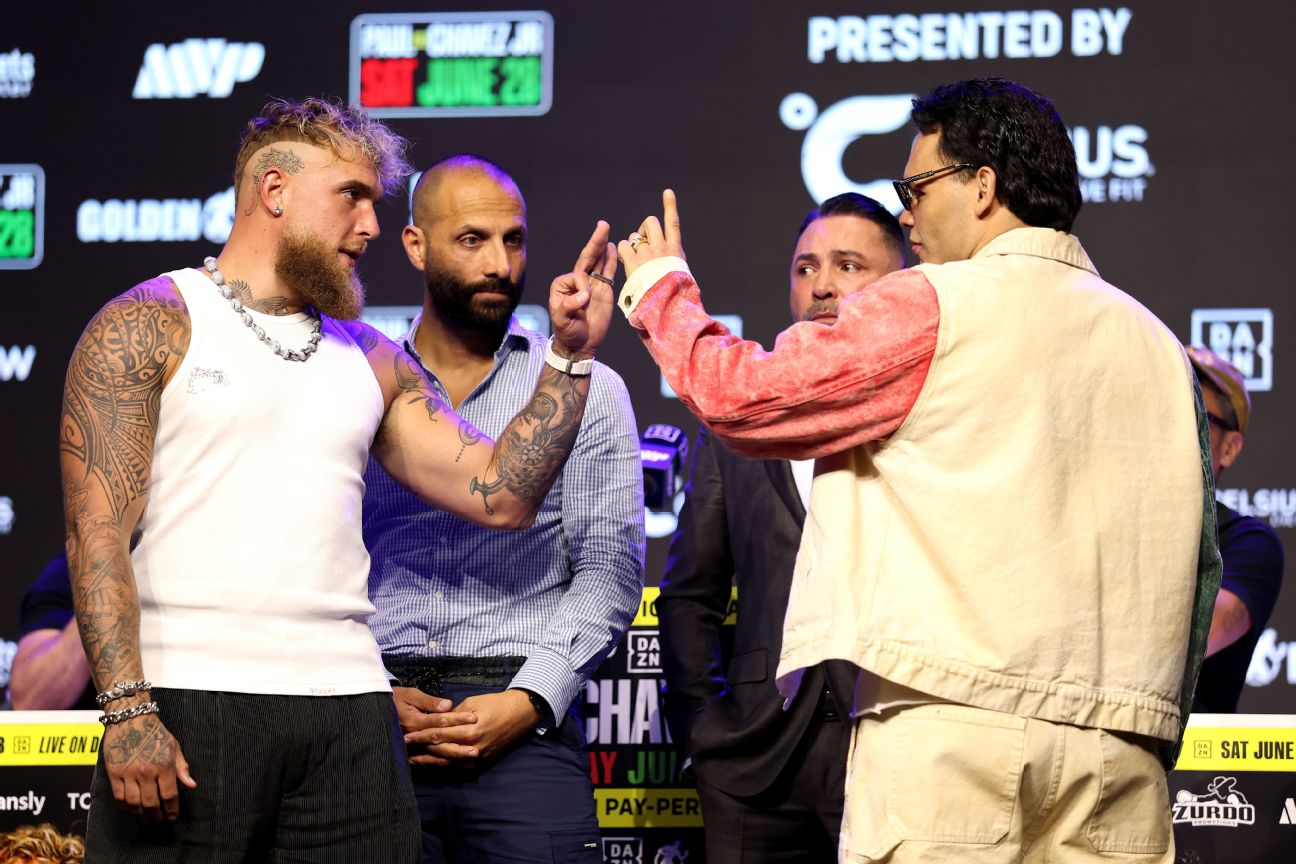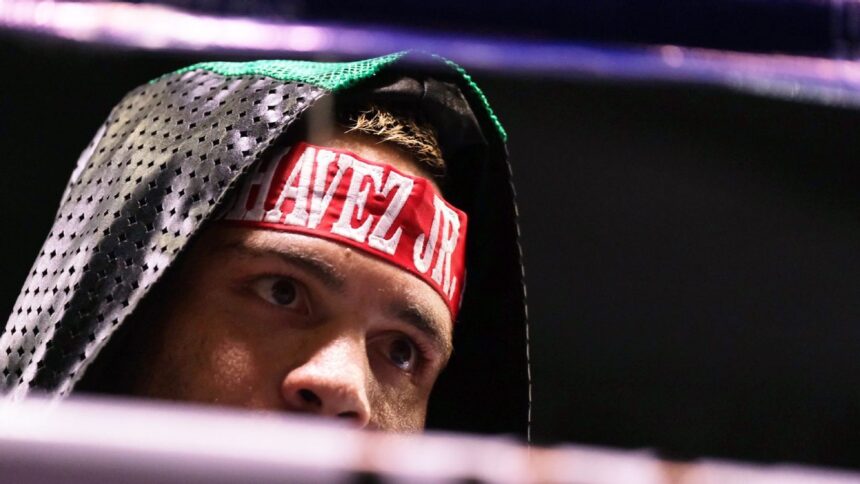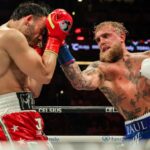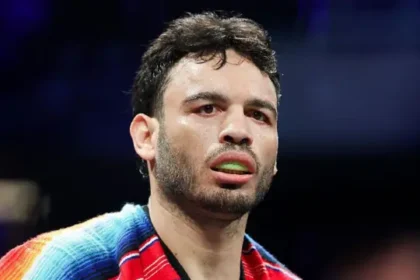Julio César Chávez Jr.: A Legacy at the Crossroads
Ten years have passed, and Julio César Chávez Jr. seems more imposing than before. It’s not that he’s gained weight, but at 39, his bone structure appears more robust, with thicker wrists and ankles. His facial features are more pronounced, and even the top of his head, a fitting metaphor for someone born into boxing royalty, is more prominent. The big question is whether he can meet the 200-pound weight limit for his fight against Jake Paul this Saturday at the Honda Center in Anaheim. Chávez Jr.’s career has been a constant enigma. Despite this, there is a certain affection for him, from the interview that was conducted with him and his father in 2015. Those conversations revealed what it was like to grow up with the most famous name in Mexico, being the son of the greatest boxer in history, at a time when his father was often under the influence of substances. Since then, Chávez Jr., who was WBC middleweight champion, has had a 6-5 record. Among those defeats, the one suffered against Anderson Silva stands out, a UFC Hall of Famer, who was nothing more than a boxing novice and had already lost against Paul. Chávez Jr. also retired twice in his corner. Eighteen months ago, he was arrested for weapons possession before being released to enter a residential rehabilitation program. His most recent victory was last July against another mixed martial arts veteran, Uriah Hall, who took him the distance of six rounds in his professional boxing debut. In a press conference, Paul demonstrated his skill for provocation. The former Disney kid knows exactly where the wounds are and how to twist the knife. “It’s the shame of Mexico… He should have been on Disney Channel… I’m going to make him quit as always,” said Paul. Then, directly to Chávez: “There are two things you can’t beat: me and your drug addiction.” To make matters worse, at least for Junior, there’s his father, whom Paul has recruited as an unwitting accomplice in this “roast.” Mr. Chávez, sitting on the stage, is the one who speaks the most for Junior. “No way, no how can Jake Paul beat my son,” he says. “I’ve never seen him train like this.” To which Paul replies: “What is this, ‘Bring Your Dad to Work Day’?”
That desire led Chávez to defeat Edwin Rosario, Meldrick Taylor, and Roger Mayweather. But, what about his namesake’s desire? Fans of a certain age remember Junior as the boy with a red ribbon on his head, a kind of prince, really, perched on the shoulders of an uncle as part of his father’s procession to the ring. But Junior himself remembers something different: his father’s addictions to alcohol and cocaine. With all the cartel guys in Culiacán, one imagines it’s like growing up in the third act of “Scarface”.“I always had the desire to be someone, to be a great fighter,” the father once said.
Chávez Sr.
“Alcohol and drugs,” Junior said in 2015. “Every day, every hour, every second.”
Chávez Jr.
“My children lived through a very difficult time in my life with my addiction,” the father acknowledged at one point, holding back tears. “It was very hard for them.”
Chávez Sr.
When he was 12 years old, remembers Junior, the local kids would beg his father for money. “If you beat my son,” he would say. “I’ll give you 1,000, 2,000 pesos.” When Junior won, his father was happy. Was fighting the way to get his love? “Yes,” he said. “Without a fight, no love.”
Are you angry with him? “I have a hard life,” Junior said. “Yes, I am angry with him.” However, it was Junior who finally took his father to rehabilitation. In 2011, according to his stepmother’s plan, he waited until Chávez Sr. was anesthetized for a routine surgical procedure, and then took him to a residential center. “If not,” said his stepmother, Myriam Chávez, “Senior would not be here today.”


Eleven days before the fight, the interview is scheduled for 8 p.m., at the Brickhouse Boxing Club in North Hollywood. Charlie Huerta, Junior’s trainer since the fight with Hall, deeply regrets that Chávez is late. “They’re packing to leave right now,” he says. In reality, Julio is still waking up. It’s 8:50 p.m. Another hour will pass before we sit down. Meanwhile, Huerta explains that, while he might not be boxing royalty, he was also born into the game. His father, Mando, runs the Maywood Boxing Club, known for consistently training tough fighters on the east side of Los Angeles. Huerta himself, a former junior lightweight, had a record of 21-7 as a professional. He is 38 years old, one year younger than Junior, and is trying to be a trainer. With three children, this is not the kind of job you turn down.
I ask what Chávez has been doing to strengthen and condition himself since Camacho fired him. “Mainly, shadow boxing and old-fashioned mitt work,” he says. “And some weights?” “Weights?” “Like, dumbbells.” “Sparring?” “Monday, Wednesday, and Friday,” says Huerta, who estimates that Chávez sparred for 36 rounds last week. “Sometimes, it’s hard to get him to the gym,” Huerta concedes. “But once he’s here, he gives 100 percent. And if he gives 100 percent, I don’t see how Jake Paul beats us.” Okay. Maybe Paul can’t take a body shot from an old-school Chávez Jr. Still, that’s a lot of “ifs.” Finally, Chávez enters with a group of assistants and training partners. He looks barely awake. He lies down on the edge of the ring, an assistant working on his calves with a TheraGun. Then we talk while they wrap his hands for training. “Why are you still fighting?” I asked.How so?“Boxing saved my life”.
Chávez Jr.

I ask about Camacho, his former strength and conditioning coach. “I still message him,” he says. So, what was the problem? Here, Huerta intervenes. Basically, Camacho wanted to work four days a week, he says. Julio only wanted two. And not on Saturdays. And the commute was too long. How do you beat Jake Paul? I ask.
“Throw many punches,” says Junior, sleepily. “Train hard.”
Chávez Jr.
What did Paul say at the press conference about you and your father? Did you take it personally? “No. I expected that.” Why did he want to fight you? Why did he choose you? “He thinks I’m old. He wants to take advantage of my situation.” Age? No. Situation, yes. It’s the natural condition of Chávez Jr., a situation that runs through the bloodline: no boxing, no love.










